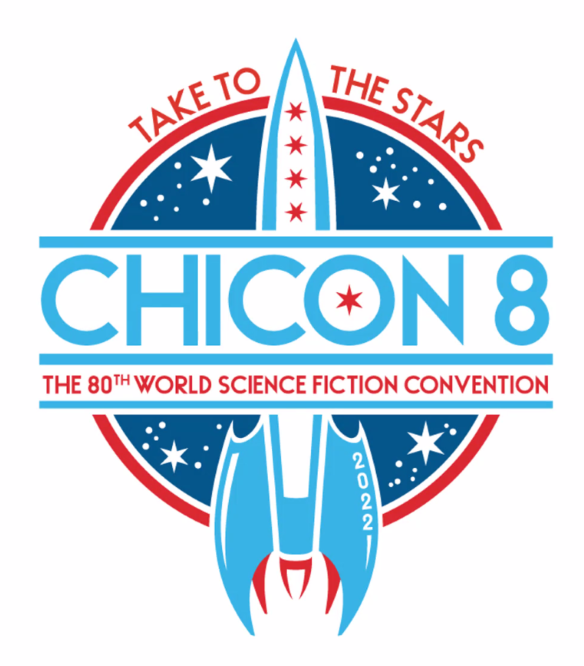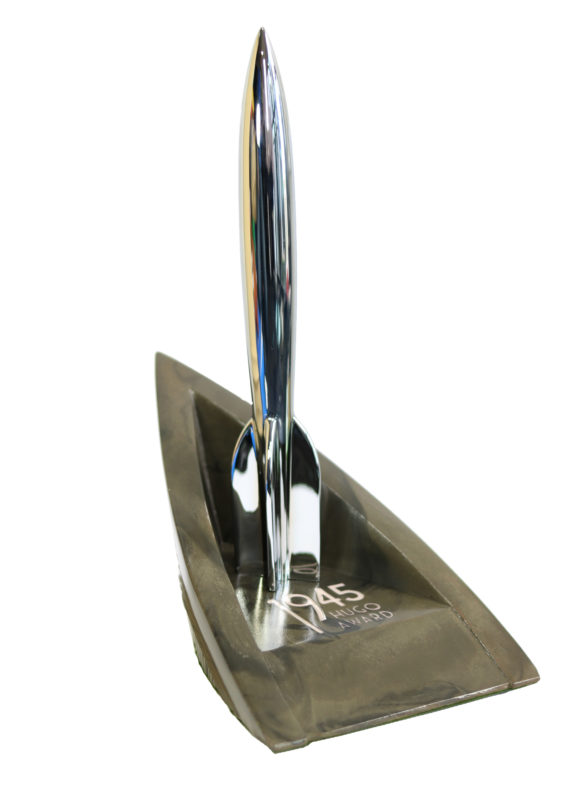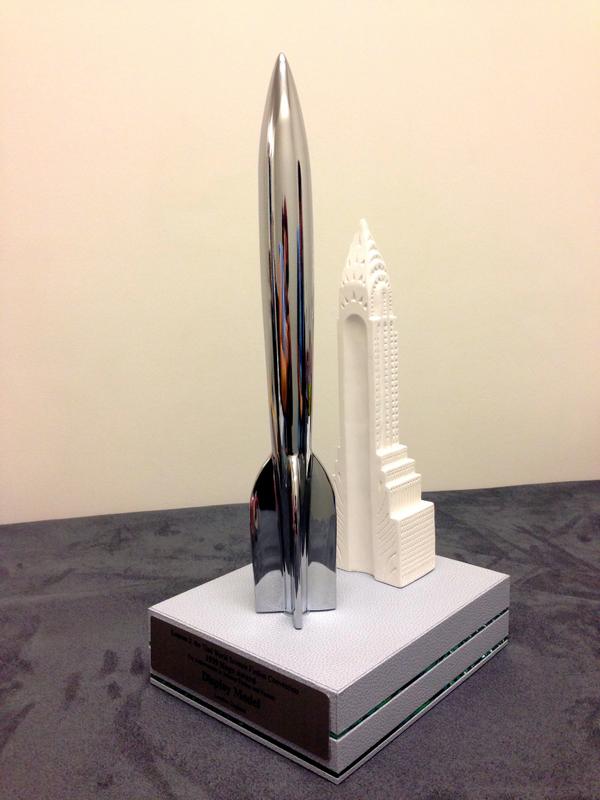
The “E Pluribus Hugo” system of counting Hugo Award nominations was re-ratified at Saturday’s Chicon 8 WSFS Business Meeting. Also passed were a resolution of solidarity with Ukraine, and another resolution condemning Sergey Lukianenko, a guest of honor of the forthcoming 2023 Worldcon, for his many statements supporting the invasion of Ukraine. (Thanks to Alex Acks’ Business Meeting liveblog for reporting this news.)
E PLURIBUS HUGO RE-RATIFIED. E Pluribus Hugo, the change in the way Hugo Awards nominations are counted, was passed in 2015 and ratified in 2016 to counter how Sad and Rabid Puppies’ slates dictated most of finalists on the Hugo ballots in those years. It came with a 2022 sunset clause attached, and had to be re-ratified this year in order to remain part of the WSFS Constitution. (See “Will E Pluribus Hugo Survive Re-Ratification?”)
At today’s business meeting Dave Wallace, one of the originators of EPH, said its overall effect has been “very beneficial”. He also spoke against the narrative that it is a “black box” and discussed his spot checking of the published voting reports.
David Kaplan presented a comparatively new argument against, that the EPH method may push works by marginalized creators down due to a slating effect of members of marginalized communities simply nominating those from their communities. He thought voters should instead use “no award” to counter slates.
In the end, EPH was “resoundingly” re-ratified. Alex Acks’ fuller notes of the discussion are here.
RESOLUTIONS. As reported by Alex Acks’ Business Meeting liveblog, Chuck Serface, a former Peace Corps volunteer who was in Ukraine, called on the meeting to support Ukraine by passing the following resolution:
Short Title: Solidarity with Ukraine
Resolved, that it is the spirit of the Business Meeting to offer solidarity with Ukrainian Fans, recognizing that Ukraine has been invaded by fascists. We encourage all to boycott those who would platform or champion the illegal invasion. The Business Meeting looks forward to a return of freedom and fandom to Ukraine.
Proposed by: Borys Sydiuk, James Bacon, Erin Underwood, Chris Garcia, Kelly Buehler, Frank Kalisz, Mike Glyer, Ian Stockdale, Dave Farmer, and Chuck Serface
Chuck Serface accompanied the submission of the resolution with the following statement:
Ukraine is an ancient and wonderful land. Ukrainians are kind and welcoming people. Ukraine is a young country. Our fandom is growing, our love of literature, science fiction and space fight strong, our conventions pleasant. We ask for solidarity.
Fans who allow the platform or champion of the illegal invasion, should know that this is not right. Fandom is about friendship. Not a space for fascists to gloat or goad. We have asked for a clear message, it supports a civilized and democratic approach to this matter.
As the Business Meeting had allocated only four minutes of discussion time to each resolution, there was time for only two areas of concern to be developed. First, the contention that a resolution concerning “real world politics” is not WSFS business. The chair of the meeting was asked to rule whether such a resolution is within their purview. He ruled it was, and his ruling was sustained when appealed to a vote by the meeting. Second, a member argued that the phrase “by fascists” be removed “due to Godwin’s Law.” That amendment was voted down.
Then the resolution – with its original wording intact — was passed.
Then the meeting took up the second resolution:
Short Title: Sergey Lukianenko
Resolved, that it is the spirit of the Business Meeting to show solidarity with Ukrainian fans and to condemn Worldcon 2023’s Guest of Honour, Sergey Lukianenko’s appalling utterances, calling Ukrainians Nazis and encouraging an illegal invasion of Ukraine. This is utterly unacceptable. Lukianenko should neither be platformed nor celebrated, and we ask the Chengdu 2023 committee, fans and members to refuse Sergei Lukianenko as your guest. it is shameful that he is honored by Worldcon.
Proposed by: Borys Sydiuk, James Bacon, Erin Underwood, Chris Garcia, Kelly Buehler, Frank Kalisz, Mike Glyer, Ian Stockdale, Dave Farmer, and Chuck Serface
Chengdu Worldcon co-chair Ben Yalow raised a Point of Order that the WSFS constitution forbids the interference of WSFS in the matter of Worldcon guests. The chair ruled against Yalow, because the resolution asks and does not direct or otherwise require action. This ruling was also appealed to a vote of the meeting and was sustained.
Then the meeting also voted to adopt the resolution.
Update 09/12/2022: Separated Chuck Serface’s statement from the language of the resolution.


